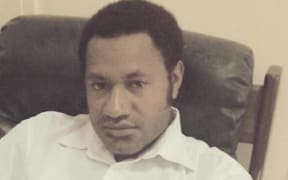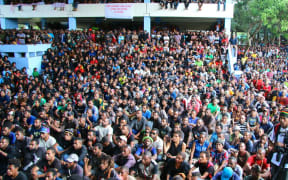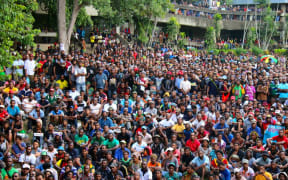The University of Papua New Guinea's proposed reconciliation will not be between students and the administration, but amongst students themselves.
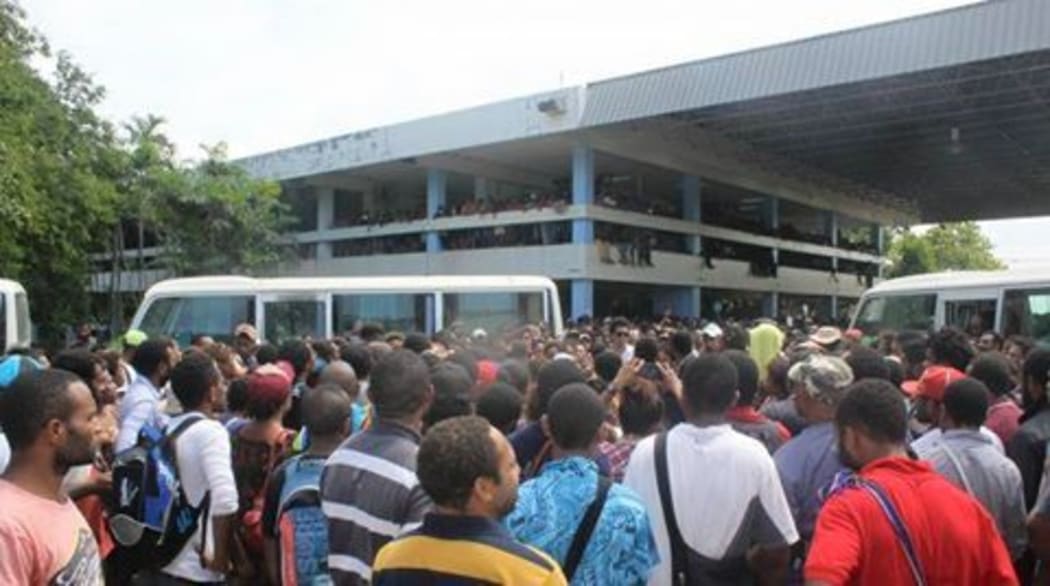
Students gather at the University of Papua New Giunea's Waigani Campus to discuss the issue of student leader termination. Photo: Supplied
The comment from UPNG's acting chancellor Dr Nicholas Mann came as academic courses resumed at the Waigani campus.
Reconciliation events are also being held at the university, following a series of disruptions around the move by students to boycott classes in May and June, which led to the academic year being suspended.
Dr Mann said that neither the UPNG administration nor its staff went around harassing and intimidating students at the time of the boycotts, but elements of the students.
"The peace reconciliation must be between the students themselves; the different groups, the different factions, the pro-boycott and anti-boycott group and the different provinces," he said.
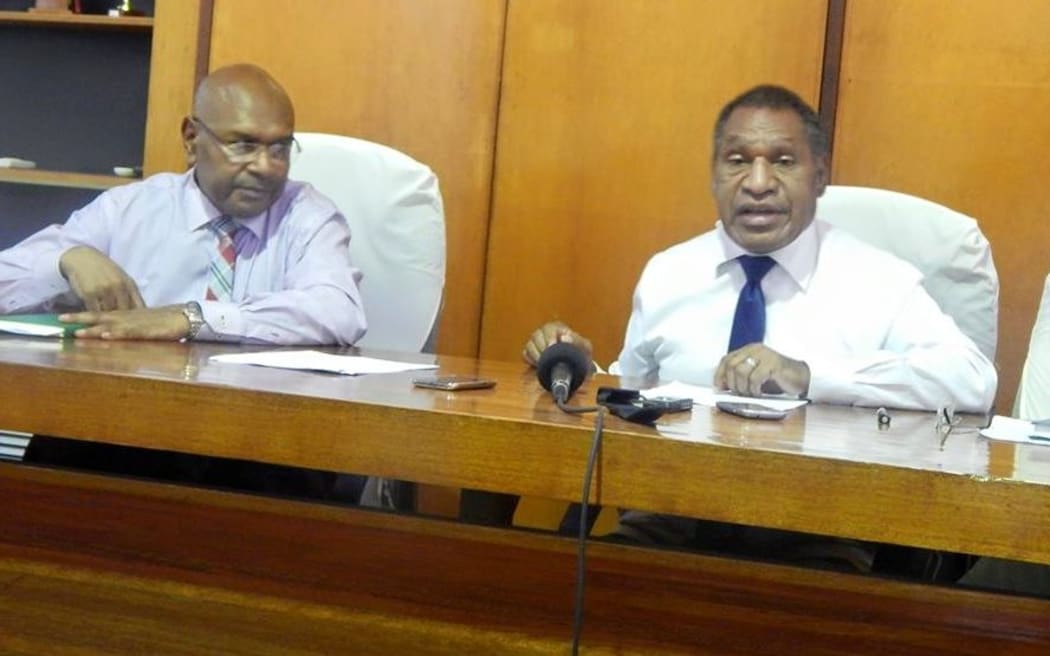
University of PNG acting chancellor Dr Nicholas Mann, right, with vice-chancellor Professor Albert Mellam. Photo: YUMI FM News
Meanwhile, Dr Mann said the issue of student leaders being terminated from UPNG courses permanently would be dealt with by the student leaders and the administration.
More than 25 leaders in the Student Representative Council are understood to have each received a copy of a letter from the acting Pro Vice-Chancellor Professor Mange Matui.
He told them in the letter that the UPNG administration "has credible evidence that, in your capacity as the SRC member of 2016, you have been involved in the 2016 May to July student unrest and boycott".
"Based on the reports I have received, and after careful considerations of relevant evidences and circumstances, you have breached all laws of Papua New Guinea, including the Criminal Code Act and the Summary Offences Act," said Professor Matui by way of explanation for their permanent exclusion.
Those terminated are appealing the decision within the UPNG administration and considering legal options, with one lawyer telling RNZI the exclusion is illegal.
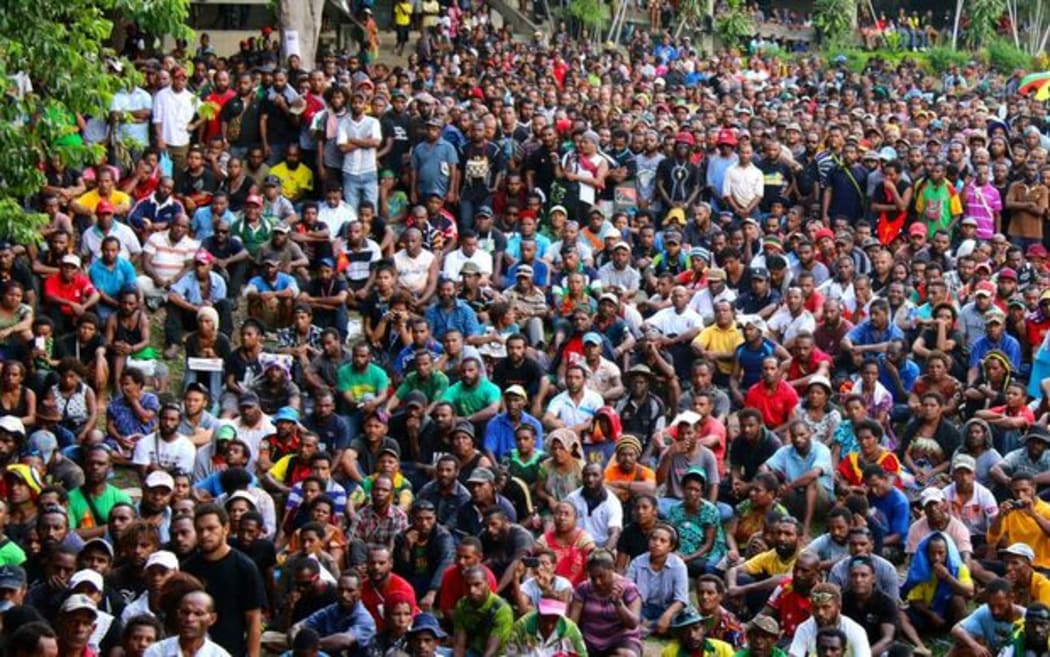
Students attend a rally at UPNG. Photo: UPNG4PNG
Civil society has voiced concern that student leaders are being unfairly blamed for the way the boycotts lapsed into unrest.
The class boycott and surrounding rallies calling for the removal of the prime minister had been peaceful but the situation lapsed into unrest when police opened fire on students who wished to march to parliament in June.
Meanwhile, the governor of Oro Province, Gary Juffa, has condemned the UPNG administration for banning student leaders, saying it was not in the best interest of democracy and free speech.
"Dissent and protests were important facets of democracy and such actions were actually discouraging free speech and the approach taken to terminate student leaders was harsh and totalitarian," said Mr Juffa.
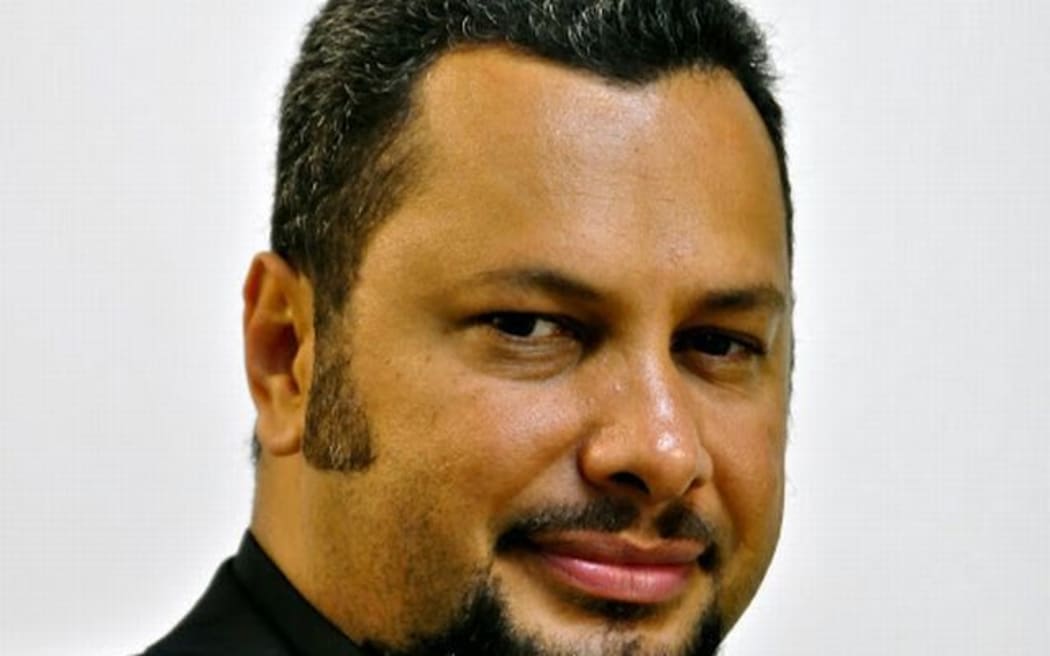
Gary Juffa, PNG Photo: Supplied
He added that if the University council wanted to restore confidence in the institution and open up classes again, they should forgo all the past mistakes and let everyone back on campus.
"To remove the student leaders was same as removing the student body because student leaders were only the mouth piece of the student body," he said.
The governor called on Dr Nicholas Mann and his team to be mindful that a round-table discussion between student leaders and the council was the way forward to restore confidence at the university.
Dr Mann reiterated that students should not involve themselves in the termination of students leaders but focus on their studies."
